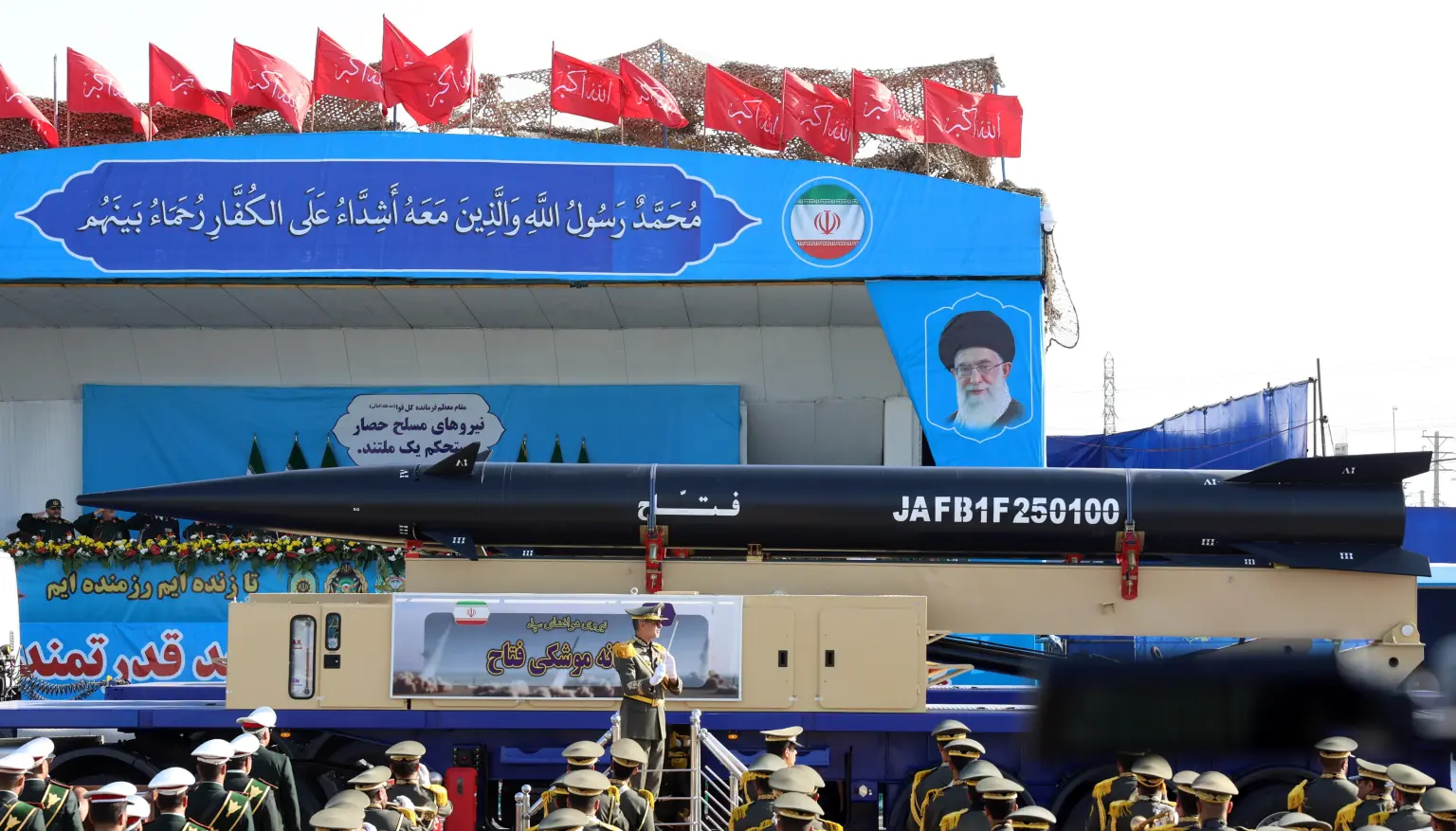International
The United States demands that Iran stop its “destabilizing activities” before a nuclear pact

The United States demanded that Iran stop its “destabilizing activities” around the world, as a precondition for both countries to resume negotiations to revive the 2015 nuclear pact.
This is how the Joe Biden Administration reacted after Iranian Foreign Minister Abbas Araqchí said that his country is ready to restart talks this week, during the UN General Assembly in New York, if “the other parties are willing.”
In statements to EFE, a State Department spokesman said that the United States considers diplomacy is “the best way” to achieve a solution, but right now it is a “very distant” possibility due to Iran’s behavior.
“The path that Iran must follow is, to a large extent, to put an end to its destabilizing activities around the world. That is something that Iran must show us with actions, not with words,” said this source.
The spokesman explained that if the Iranian government wants to demonstrate “its good faith,” it must first adopt a series of immediate measures that involve “stop arming terrorist groups” and “stop their nuclear escalation and lift their blockade on the International Atomic Energy Agency (IAEA)”.
Also stop “killing opponents”, stop the “unjust executions of Iranians” and stop “the transfer of missiles and drones to Russia” that are used in the war in Ukraine.
“We will continue to judge the regime by its actions, not by its words,” he said.
In 2015, Iran signed a nuclear agreement that limited its atomic activities in exchange for the lifting of sanctions with six major powers, including the United States.
The Administration of Donald Trump (2017-2021) left the agreement unilaterally in 2018 and, since then, Iran has considerably increased its nuclear program, without it being possible to reach another pact.
The Biden government tried to revive the agreement, but negotiations with Iran broke down in 2022.
Last July, the United States Secretary of State, Antony Blinken, said that Iran was “one or two weeks” away from having enough enriched uranium to develop a nuclear weapon.
The OEIA recently estimated that Iran’s total stocks of enriched uranium, which according to the nuclear agreement should not exceed 300 kilos, totaled 5,751 kilos in mid-August.
Iranian President Masud Pezeshkian has been willing to try to improve relations with Western countries since taking office at the end of July, but has always stressed that he will not “tolerate
International
Dominican ‘False Hero’ Arrested for Faking Role in Nightclub Collapse That Killed 231

A man identified as Rafael Rosario Mota falsely claimed to have rescued 12 people from the collapse of the Jet Set nightclub in Santo Domingo—a tragedy that left 231 people dead—but he was never at the scene.
Intelligence agents in the Dominican Republic arrested the 32-year-old man for pretending to be a hero who saved lives during the catastrophic incident, authorities announced.
Rosario Mota had been charging for media interviews in which he falsely claimed to have pulled survivors from the rubble after the nightclub’s roof collapsed in the early hours of April 8, during a concert by merengue singer Rubby Pérez, who was among those killed.
“He was never at the scene of the tragedy,” the police stated. The arrest took place just after he finished another interview on a digital platform, where he repeated his fabricated story in exchange for money as part of a “media tour” filled with manipulated information and invented testimonies.
“False hero!” read a message shared on the police force’s Instagram account alongside a short video of the suspect, in which he apologized: “I did it because I was paid. I ask forgiveness from the public and the authorities.”
Central America
Nicaraguan Exiles to Mark 7th Anniversary of 2018 Protests with Global Commemorations

The Nicaraguan opposition in exile announced on Thursday that it will commemorate the seventh anniversary of the April 2018 protests against the government of President Daniel Ortega and his wife, Rosario Murillo, with events in Costa Rica, the United States, and several European countries.
The commemorative activities—which will call for justice for the victims, as well as freedom and democracy for Nicaragua—will include religious services, public forums, cultural fairs, and other public gatherings, according to official announcements.
In April 2018, thousands of Nicaraguans took to the streets to protest controversial reforms to the social security system. The government’s violent response quickly turned the demonstrations into a broader call for the resignation of President Ortega, who is now 79 and has been in power since 2007.
The protests resulted in at least 355 deaths, according to the Inter-American Commission on Human Rights (IACHR), although Nicaraguan organizations claim the toll is as high as 684. Ortega has acknowledged “more than 300” deaths and maintains the unrest was an attempted coup d’état.
International
Arsenal stun Real Madrid at the Bernabéu to reach Champions League semifinals

Arsenal enjoyed a “historic night” on Wednesday after defeating Real Madrid 2-1 at the Santiago Bernabéu, knocking them out of the Champions League quarterfinals, midfielder Declan Rice said.
“It’s such a special night for this club, a historic night for this club,” said Rice, who scored twice in the first leg in London, speaking to TNT Sports.
The English international was named Man of the Match in both legs — the 3-0 win in London and the second leg in Madrid.
“It’s amazing. I knew we were on an upward trajectory and we’ve done incredibly well in this competition. We deserve it and we have full confidence in our coach. Reaching the semifinals is unbelievable,” Rice added.
-

 International4 days ago
International4 days agoNightclub Collapse in Dominican Republic Claims 226 Lives
-

 International4 days ago
International4 days agoVenezuela accuses Guyana of “warlike intentions” after UK defense deal
-

 Central America3 days ago
Central America3 days agoHonduran Police Offer $135K for Tips Leading to the Arrest of Romeo Vásquez
-

 Central America2 days ago
Central America2 days agoPetro questions Ecuador’s vote, cites reports of military control and arrests
-

 International3 days ago
International3 days agoMPV Denounces Electoral Blockade as Secretary-General is Disqualified for May Elections
-

 International3 days ago
International3 days agoMaduro Plans Major Workers’ March on May 1st to Defend Venezuela’s Freedom
-

 International1 day ago
International1 day agoArsenal stun Real Madrid at the Bernabéu to reach Champions League semifinals
-

 International1 day ago
International1 day agoBogotá residents line up for yellow fever vaccine amid national alert
-

 International1 day ago
International1 day agoMexico refuses to restore ties with Ecuador while Noboa remains in office
-

 International2 days ago
International2 days agoColombia: Search continues for missing limb of italian scientist found dismembered
-

 International1 day ago
International1 day agoDeSantis’ immigration crackdown sparks alarm in Venezuelan Communities in Doral
-

 International2 hours ago
International2 hours agoDominican ‘False Hero’ Arrested for Faking Role in Nightclub Collapse That Killed 231
-

 Central America2 hours ago
Central America2 hours agoNicaraguan Exiles to Mark 7th Anniversary of 2018 Protests with Global Commemorations















